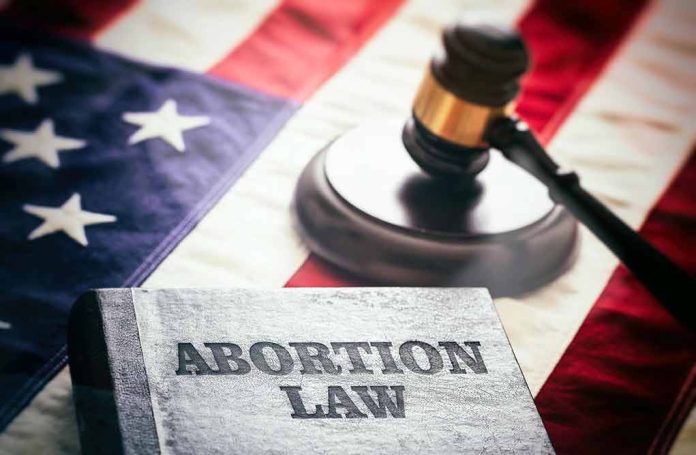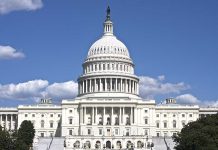
The Georgia court’s reversal of its controversial six-week abortion ban sets a new legal precedent, but the battle isn’t over yet.
At a Glance
- Georgia’s six-week abortion ban overturned by the Superior Court of Fulton County.
- The state now allows abortions up to 22 weeks, pending appeal.
- Legal appeal anticipated from Georgia Attorney General’s office.
- Ruling deemed a victory for privacy and reproductive rights.
Georgia Court Overturns Abortion Ban
The Superior Court of Fulton County recently declared Georgia’s six-week abortion ban unconstitutional. This landmark ruling came after extensive debates regarding reproductive rights under state constitutional provisions. The annulment of H.B. 481 extends legal abortion services until 22 weeks. Chief Justice Robert McBurney emphasized the Georgia Constitution’s stance against pre-viability political interference. The decision represents a significant stride for reproductive justice advocates.
Georgia’s prior decision to keep the LIFE Act in place had already caused considerable debate. Originally enacted in 2019, the law took effect following the Supreme Court’s overturning of Roe v. Wade in 2022. However, recent legal challenges have reignited the discussion on abortion rights in the state, prompting the court’s current judgment. While proponents claim the ruling protects women’s privacy rights, opponents, including Governor Brian Kemp, argue it jeopardizes unborn lives.
A Fulton County judge has struck down Georgia's restrictive "Heartbeat Law" that banned abortions after the six-week mark. https://t.co/4hz5hNLvME
— FOX 5 Atlanta (@FOX5Atlanta) September 30, 2024
Legal and Political Implications
Georgia’s Attorney General plans to contest the recent court ruling and may appeal to the state’s highest court to reestablish the six-week ban. Judge McBurney’s decision marks a pivotal shift in Georgia’s legal landscape concerning abortion laws and privacy rights. As the state navigates these legal battles, Georgia’s contentious abortion debate remains an essential issue for the upcoming presidential election. The attention on the state highlights its role as a key swing state, indicating broader national implications.
Multiple organizations including the ACLU, Planned Parenthood, and the Center for Reproductive Rights spearheaded the challenge against the ban. They argue that the restrictions created systemic barriers for marginalized communities seeking abortion services. The court also spotlighted privacy concerns regarding district attorneys’ access to patients’ medical records under the law. Statements from advocacy groups celebrating the ruling echo the victory for privacy and reproduction rights.
Future Prospects
The decision to overturn the six-week abortion ban positions Georgia at the forefront of nationwide discourse on abortion rights. Vice President Kamala Harris has actively campaigned against such restrictions while advocating for the restoration of Roe v. Wade protections. This intensifies Georgia’s role in the evolving abortion debate, as public opinion remains sharply divided. Beyond legal frameworks, this ongoing scenario reflects the persistent societal and ideological divide over abortion laws across the United States.
The constant legal maneuvering leaves the future of abortion law in Georgia unpredictable. With both sides firmly entrenched in their positions, the potential for further disputes and legal proceedings looms large. As the state scrutinizes these developments, Georgia’s trajectory could influence similar legislative and judicial actions in other states, underscoring its cruciality in the broader national legal context.













